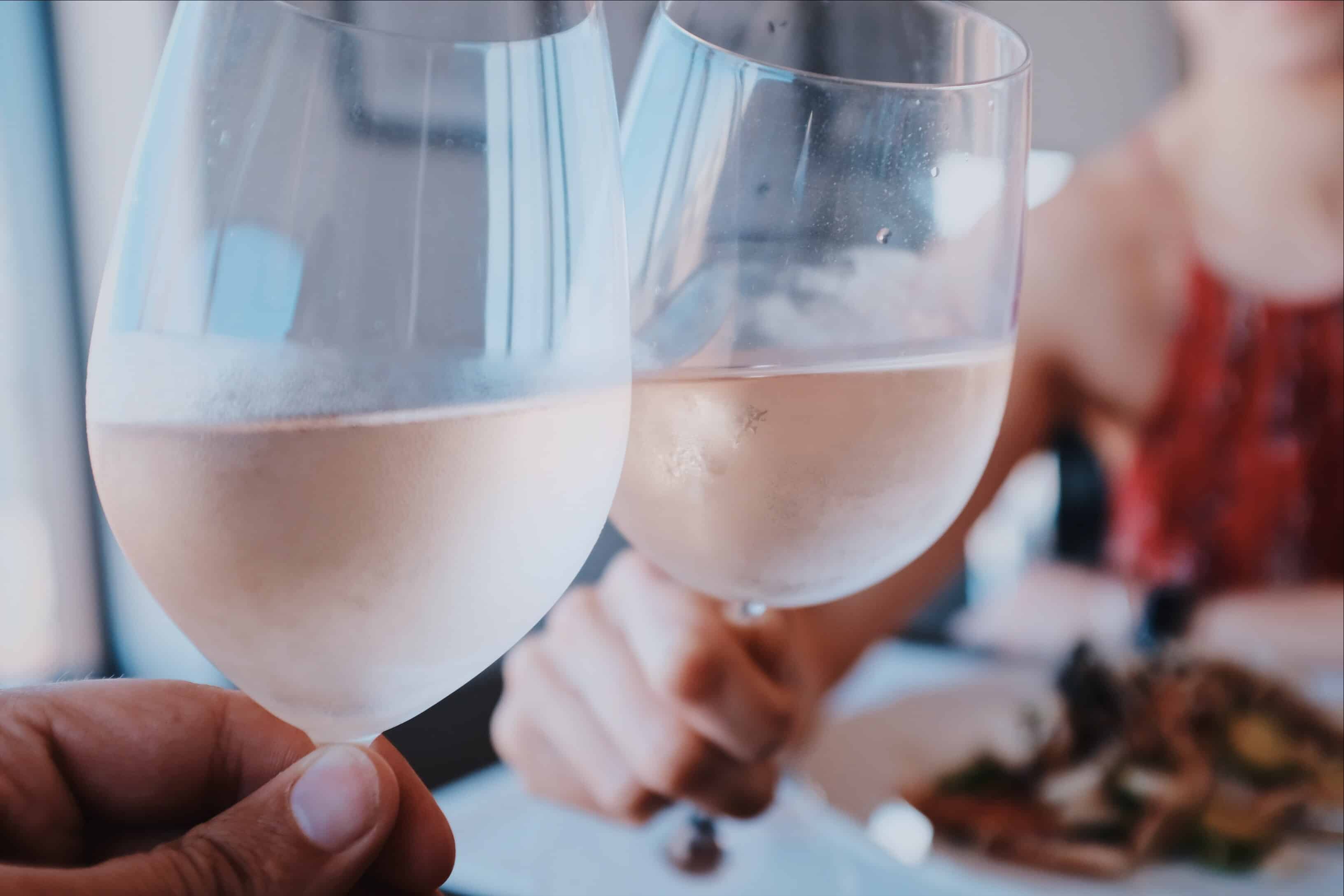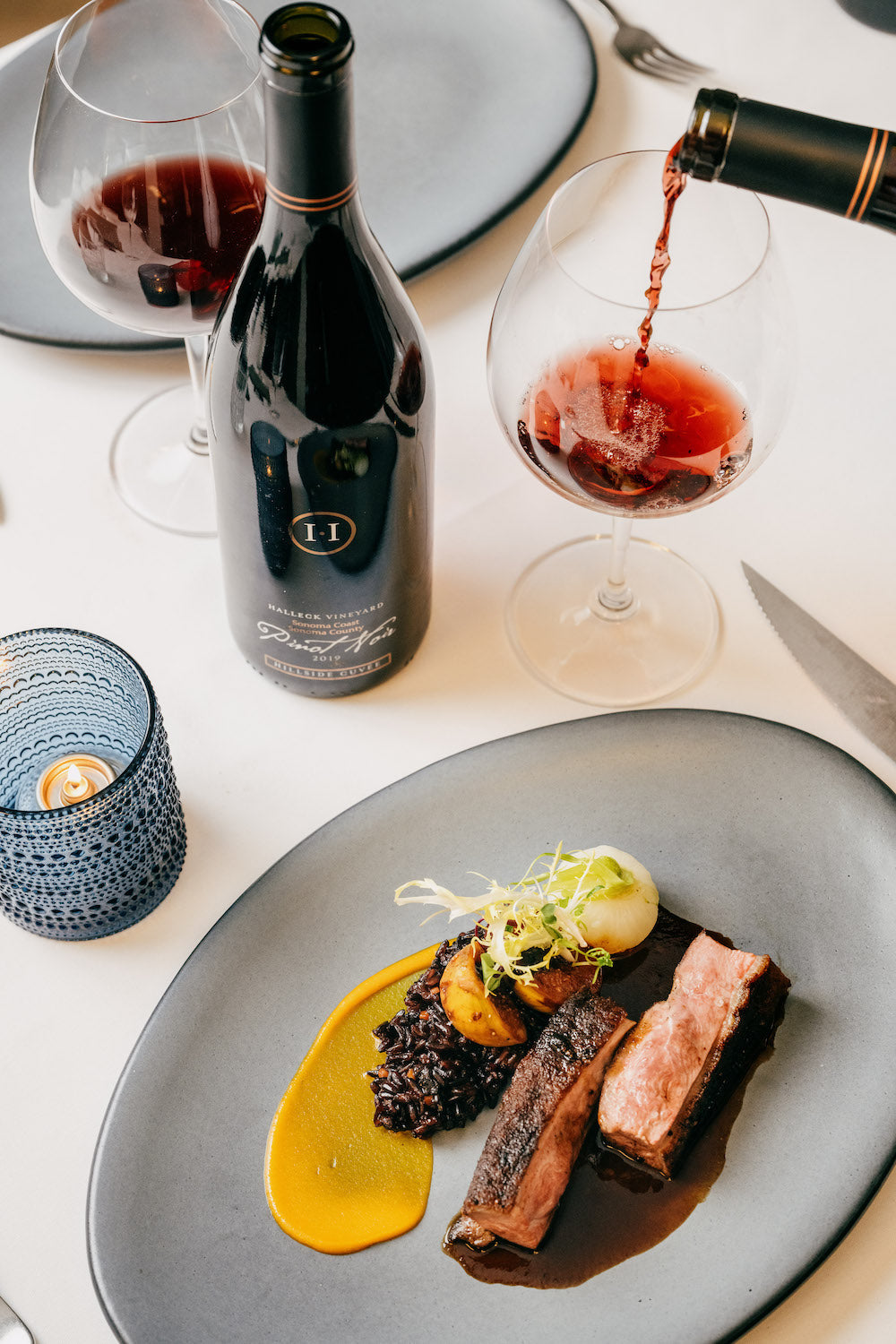Wineries Known For Sustainable Practices In Sonoma - Sonoma's Hidden Winery Gems
Wineries Known For Sustainable Practices In Sonoma - Sonoma's Hidden Winery Gems
Blog Article
Sonoma's Top Sparkling Wine Producers - Sonoma Valley Vineyards And Wine Tasting
Wine tasting is commonly considered an art form, one which goes beyond merely having fun with a beverage. It embraces a posh interplay of flavors, aromas, and textures that requires devoted practice to truly grasp. Many who venture into the world of wine tasting shortly realize that it entails much more than simply sipping wine. Improving sensory skills by way of dedicated winery wine tasting can elevate the experience, reworking a casual consuming occasion into a sophisticated exploration of the senses.
At a primary stage, wine tasting engages the senses of sight, odor, style, touch, and even sound. Every part performs an important function in appreciating the nuances of a wine. When one first pours a glass of wine, the rich hues can present preliminary insights into its age and varietal. Observing the color and readability helps kind expectations concerning the wine's flavor profile. Many don’t totally appreciate how this visual evaluation can set the stage for what is to comply with.
The next step is to interact the sense of scent. Swirling the glass aerates the wine, permitting its volatile compounds to escape and fill the air with its bouquet. The nose entails some fascinating layers—different aromas can sign varied features of the winemaking process, including the sort of grapes used, fermentation methods, and getting older circumstances. Developing a eager sense of smell can be a game-changer in wine tasting.
Wineries With Outdoor Seating - A Guide To Sonoma Wineries
To improve this sensory skill, wine enthusiasts are often inspired to take part in devoted tastings at wineries. These tastings permit people to focus solely on the sensory experience (Wineries With Estate-Grown Grapes). Tasting periods led by knowledgeable sommeliers or winemakers can provide insights into identifying distinct aromas. Studying to differentiate between floral, fruity, earthy, and spicy notes can empower a taster to articulate their experience with larger precision.
As one practices their sensory talents, they may uncover that their taste preferences evolve. This transformation typically occurs after multiple tastings. A wine that initially appeared overwhelming might reveal hidden layers of complexity with a little bit of experience. Understanding tips on how to isolate particular person flavors such as acidity, sweetness, bitterness, and umami contributes considerably to the general wine experience.
Another important element in enhancing sensory skills is the context in which wine is tasted. Environmental components like temperature, lighting, and even the corporate current can influence perceptions. At a winery, an optimum setting can reduce distractions and allow a extra profound exploration of the wine (Wineries Promoting Sustainable Farming). Working Towards mindful tasting techniques encourages a extra immersive experience, allowing tasters to hone in on their senses.
It is not solely about individual notion, although. Partaking with others throughout a tasting can also improve sensory skills. Sharing notes and discussing impressions fosters a deeper understanding of the wine. This collaborative approach encourages members to articulate their sensory experiences, thereby broadening their linguistic repertoire related to wine tasting.
Wineries With Unique Tasting Experiences - Vines And Views In Sonoma Wine Country
Moreover, pairing wine with food can considerably enhance the tasting experience. Different combos can convey out distinctive flavors in each the wine and the dish. As one tastes a wine alongside explicit foods, they'll begin to recognize how sure components within the wine complement or distinction with what they are consuming. This skill of pairing is another layer that enriches sensory development.
Coaching one’s palate can involve a variety of workouts. Some enthusiasts interact in systematic look at this site tasting experiences, sampling a range of wines that showcase completely different varietals, areas, or vintages. Exploring this variety can sharpen the ability to discern nuances throughout different wine profiles. Over time, this practice builds a psychological library of flavors that might be accessed during future tastings.
Notably, written notes serve a twin purpose: organizing one’s ideas and reinforcing memory. By writing down observations about every wine, tasters can monitor their progress over time. Detailing the traits of wines assists in solidifying information, ultimately deepening one’s appreciation of what they eat.
Furthermore, attending workshops or classes targeted on sensory evaluation may also be beneficial. Many wineries provide these instructional programs to assist individuals refine their skills. Usually, trained instructors guide members through structured tastings, specializing in specific parts of the wine. This level of schooling reinforces the sensory skills asynchronously and challenges tasters to think about their experiences from totally different angles.
Wine Tasting Trails In Sonoma Valley - Sebastopol Wine Country

Over time, the dedication to improving sensory skills through dedicated winery wine tasting can yield significant rewards. The enjoyment derived from wine becomes layered and multifaceted. No longer limited to a simple choice for "purple" or "white," tasters begin to understand the tales behind every pour. They domesticate a palette able to navigating the complex panorama of flavors with confidence.
In conclusion, the journey of enhancing sensory skills via dedicated winery wine tasting is as rewarding as it's enjoyable. It requires focus, commitment, and a willingness to be taught, but the outcomes far exceed the initial effort. By participating multiple senses and taking part in thoughtful discussions, individuals not solely become more proficient at figuring out flavors but in addition develop a deeper appreciation for the craftsmanship behind every bottle. The process transforms wine from a mere beverage into a wealthy tapestry of sensory exploration that beckons enthusiasts to delve deeper. As skills improve, so too does the enjoyment, enriching life experiences one sip at a time.
Remarkable Craft Wineries In Sebastopol - Tasting Fine Wines In Sonoma County
- Participating the palate by way of numerous wine varieties enhances the ability to inform apart flavors and aromas, refining total sensory perception.
- Participating in guided tastings promotes centered consideration on refined characteristics of every wine, nurturing critical tasting skills.
- Studying to establish specific grape varieties fosters a deeper understanding of terroir, which aids in recognizing regional flavor profiles.
- Incorporating food pairings throughout tastings can heighten sensory awareness, as totally different tastes can affect one another and alter perceptions.
- Working Towards the art of swirling and nosing wines permits people to attach olfactory cues with taste, improving the power to articulate sensory experiences.
- Attending workshops that emphasize blind tastings trains individuals to rely purely on their senses quite than preconceived notions, enhancing objectivity.
- Elevating sensory skills can result in higher wine choice skills, empowering people to make knowledgeable selections primarily based on personal preferences.
- Participating with educated sommeliers presents insights into wine-making processes, which deepens sensory appreciation and enhances vocabulary for describing wines.
- Common participation in tastings encourages reminiscence growth of flavors and aromas, aiding within the formation of a personalised sensory profile over time.
- Sharing tasting experiences with friends fosters dialogue, selling communal studying that can enhance individual sensory skills via collaboration.undefinedWhat is the aim of bettering sensory skills via wine tasting?

Enhancing sensory skills via wine tasting allows people to reinforce their ability to establish and respect the various aromas, flavors, and textures of wine. This heightened sensory consciousness why not try this out can lead to a deeper understanding of wine and an overall enriched tasting experience.
Wineries Promoting Sustainable Farming - Sebastopol Wine Country
How can I develop my sensory skills at a winery?
You can develop your sensory skills at a winery by participating in guided tasting sessions that target specific varietals. Engage with knowledgeable workers who can present insights and encourage you to take notes in your impressions, enhancing each your observational and descriptive talents.
What ought to I anticipate during a dedicated wine tasting experience?
Wineries With A Focus On Syrah - Sonoma County's Best Wine Experiences
Throughout a devoted wine tasting experience, count on to sample a selection of wines while receiving targeted education about every one. You Will study concerning the winemaking course of, tasting techniques, and how to discern completely different sensory traits, all in a relaxed environment.
Is prior information of wine essential to benefit from a sensory skills workshop?
- Eco-Friendly Wineries In Sonoma County
No prior data of wine is necessary; the workshops are designed for all ranges of experience. Novices will find priceless information to build from, whereas seasoned tasters can refine their skills and expand their palate even further.
How do sensory skills impression my overall wine appreciation?
Wineries With Educational Tours In Sonoma - Sonoma Area Winery For Tasting
Bettering sensory skills significantly enhances your overall wine appreciation by permitting you to determine subtleties and complexities in wines. This deeper understanding enriches your tasting experience and helps you make informed alternatives based mostly on personal preferences.
Are there particular techniques I ought to use while tasting wine to enhance my sensory skills?
Wine Tasting Events In Sonoma County - Wineries To Explore In Sonoma Valley
Yes, using techniques such because the "SWOT" methodology (Sight, Swirl, Scent, Sip, Savor) may be helpful. Pay consideration to the wine's appearance, aromatics, and mouthfeel, and take your time with each sip to fully explore the flavors and sensations.
What type of wines are typically included in sensory skills tastings?
Usually, sensory skills tastings embrace a wide selection of wines that showcase totally different regions, varietals, and styles. This range helps individuals identify distinct traits and enhances their ability to distinguish between wines.
Can sensory skills workshops be personalized to my tasting interests?
Off The Beaten Path Wineries In Sonoma - Sonoma Wine Tasting Recommendations
Many wineries offer personalized options for sensory skills workshops, allowing you to focus on specific types of wines or themes that curiosity you, corresponding to organic wines or distinctive regional choices. It Is greatest to inquire immediately with the winery for tailored experiences.
Is there a method to practice sensory skills after leaving the winery?
Yes, you'll be able to practice your sensory skills at home by tasting completely different wines and maintaining a tasting journal. Experimenting with numerous food pairings and aromatics can further enhance your understanding of how flavors interact, reinforcing the abilities gained on the winery. Report this page